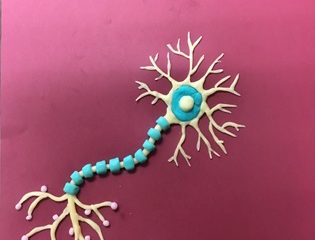Once again returning to our political theme, we have a new study that suggests that optimism is an important part of the political process. According to researchers at the University of Pennsylvania’s Positive Psychology Center, the most optimistic candidates have won the U.S. presidency more than 80 percent of the time since 1900.
Using an analysis tool called the Content Analysis of Verbatim Explanations (CAVE), the U. Penn researchers analyzed speeches given by this year’s candidates at their respective party conventions and at the Saddleback Forum on Faith, coding for optimism.
Drum roll…..and the results show……that John McCain and Barack Obama demonstrated equal optimism, and Sarah Palin was more optimistic than Joseph Biden, who was “by far the most pessimistic of the four.”
Palin and Biden Differ in Optimism
In addition, the researchers looked at the candidates’ patterns of attribution, and found that the Republicans were more likely than the Democrats to attribute positive outcomes internally and negative outcomes externally, a pattern we see most frequently in the general population, at least according to classic research by Miller and Ross (1975) on the self-serving bias [1]. Unfortunately, there seems to be a lot of misunderstanding out there in the blogosphere about this finding of the U. Penn study–people view the self-serving bias as a bad thing to do, but really it’s the typical thing to do.
In fact, people who reverse this bias, blaming themselves deeply for failure and viewing their successes as resulting from chance or luck are much more likely to have low self-esteem issues and depression. I’m all about thinking honestly, and learning from your mistakes, but we also need to keep our chins up to do so.
If this discrepancy between the candidates is representative of their followers, it might help explain the “happiness gap” we discussed in an earlier post, and it is certainly consistent with the optimism findings.
Nobody really knows what people are likely to do in the privacy of the voting booth until the results are in, but these speculations can be a lot of fun.
By the way, if you’d be interested in participating in the Positive Psychology Center’s online research, you can choose from many ongoing studies here.
1. Miller, D.T., & Ross, M. (1975). Self-serving bias in the attribution of causality: Fact or fiction? Psychological Bulletin, 82, 213-225.



5 Comments
Jaclyn Shostrom · October 5, 2008 at 4:54 pm
This is an interesting thought about political parties and their differences. Although I do believe that optimism plays a role in people’s choice of candidate, optimism is a hard thing to judge since it’s based somewhat on opinion. The fact that a computer program could do this when it’s difficult even for a person kind of baffles me too. The idea that Republicans give themselves more credit for doing things correctly and blaming others for downfalls shouldn’t always be interpreted as a good thing. We need to realize our mistakes and be able to admit to them because we can really only fix our problems once we ourselves have realized our flaws. People always try to predict the voting outcomes, but these guesses don’t really matter; it’s the votes on November 4th that count.
Amber Thompson · October 5, 2008 at 5:50 pm
What is meant by “positive outcomes internally and negative outcomes externally”? Does “internally” refer to the individual’s self-esteem or personality, or is this in effect to the public’s views of the individual? And does “externally” refer to how the public reacts to the individual or how the individual shows their positivity/negativity?
nikkinate · October 5, 2008 at 10:46 pm
Some view the glass half empty, others half full. In this particular blog discussing the effects of a presidential candidate’s attitude toward the presidency, I find it extremely interesting and very relevant to the historic election taking place! With the results that UPENN have gathered, it will be interesting to see who wins the election and how accurate the study’s data is. Like many other things in life, one’s attitude is always a main factor in the end results.
mama5512 · October 6, 2008 at 9:03 pm
I guess if you want something so bad your optimistic side will prevail. It is really hard at this time to really predict who will become our next president only off of their attitude towards the campaign. Does being pessimistic make you look at things negatively? Or does it make you look at things in a reality type perspective especially with the things that are happening around us!! It is pretty neat to think that our times have changed and our creativity grows stronger about different ideas and thoughts on different research ideas I can’t wait to see who will win the presidential elections, but ultimately it is up to the PEOPLE to decide, the benefits of a democracy.
ajacopet · October 8, 2008 at 6:52 pm
Although this is an interesting study, I have a hard time believing the validity of the procedure they did to get their results. By purely relying on each speech to “decode” their optimism, researchers did not account for each candidate’s public speaking skills. For example, in these past Presidential Debates, it is clear that Barack Obama is a better speaker than John McCain. However, this does not mean Obama is more optimistic than McCain. McCain could just be uncomfortable in speaking, but that doesn’t mean he lacks confidence. The same goes with Palin and Biden. Regardless of my input on the procedure in this study, it is interesting to ponder.
Comments are closed.